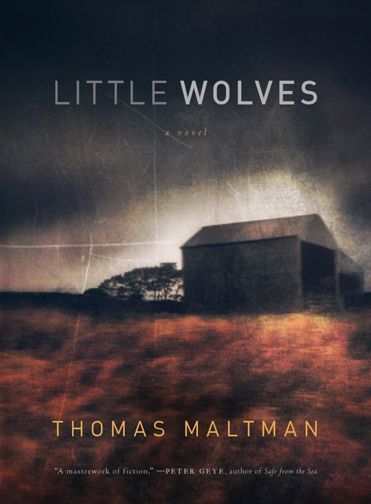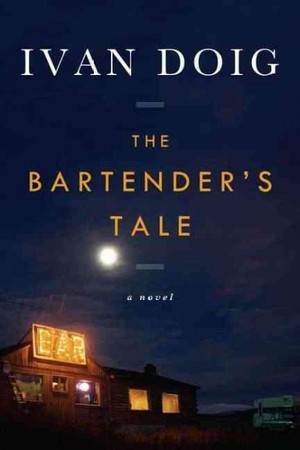Little Wolves by Thomas Maltman
I’m almost always a fan o...
Little Wolves by Thomas Maltman
 I’m almost always a fan of books that can turn a landscape or region into its own kind of character. Cormac McCarthy comes to mind, and of course Mark Twain. I’m inclined to add Thomas Maltman, author of Night Birds, to this list: the eloquent grittiness of Little Wolves derives in large part from the author’s masterful understanding of setting.
I’m almost always a fan of books that can turn a landscape or region into its own kind of character. Cormac McCarthy comes to mind, and of course Mark Twain. I’m inclined to add Thomas Maltman, author of Night Birds, to this list: the eloquent grittiness of Little Wolves derives in large part from the author’s masterful understanding of setting.
Based loosely on true events, Little Wolves takes place in the stark Minnesota prairies some thirty years ago. The story begins with the seemingly unprovoked murder of the town sheriff by a troubled teen named Seth, whose father Seth, Sr.–or Grizz, as he is known around town–suddenly finds his quiet farmer’s life overturned as the townsfolk rally against him for justice. In the midst of the turmoil following the sheriff’s death, Grizz befriends Clara, wife of the town’s new minister and Seth’s (former) English teacher. In fact, as the plot wears on we come to find that perhaps Clara knew more about the troubled outcast than she or anyone else really knew.
While Clara and Grizz are not exactly original character types (the gruff, down-on-his-luck farmer who just needs to be loved; the secretly faith-doubting English teacher who just doesn’t fit in with the rest of the town’s conservative Lutheran women), they balance each other out nicely, and Maltman takes pains to ensure that they are well-developed, especially Grizz, whose tumultuous relationship with his late son is rendered with unsettling realism, as are his manic efforts to move past the tragedy and instead focus on his own grueling farm life.
If there’s any strike to draw against Little Wolves, it’s Maltman’s tendency toward artsy, only-kinda-relevant subplots, namely Clara’s fascination with Norse and Anglican mythology. Several of the gods of this pantheon are employed for symbolism, which isn’t entirely uninteresting, but it doesn’t really seem necessary, either. Rather, it seems at times like exactly that, a heavy-handed attempt at symbolism, one that ultimately doesn’t contribute much to the narrative. The same could be said for the back story concerning Seth and the sheriff: I have no doubt that these things could be engrossing in a Grishamy sort of way, but at the moment they feel unfinished, like roads left unpaved.
But then, one gets the impression that Maltman was actively working against the Grisham thriller model, focusing instead on character and place and letting the tension unfold from there. Which it does, and beautifully so. Little Wolves is flawed, certainly, but in a way that seems strangely fitting considering its gritty aesthetic. Most of its missteps are minor and are largely the result of Maltman’s commendable efforts to maintain the story’s integrity.
The Bartender’s Tale by Ivan Doig
 I tried to get into this one. I really did. I thought, A coming-of-age story set in rural Montana in the 60s? That’s got me written all over it!
I tried to get into this one. I really did. I thought, A coming-of-age story set in rural Montana in the 60s? That’s got me written all over it!
But of course, as anyone will tell you, there’s only so much you can do with this kind of tale, and it takes a truly masterful writer to really surprise his/her audience with a new spin on it. Unfortunately, Ivan Doig is not that writer.
We begin with 12-year-old Rusty Harry, our narrator, being picked up from his aunt’s house–where he’s been living for the past several years–by his father Tom Harry, who has abruptly shown back up in the boy’s life. Tom owns and operates the Medicine Lodge, the only decent watering hole in the tiny town of Gros Venture. It’s a predictably shabby place frequented by minors and truckers and any number of disreputable characters whom Rusty eagerly observes from the back room of the bar, where his father stashes him during business hours. Not surprisingly, things take a turn for our narrator when 12-year-old Zoe Constantine (really, that’s her name) movies into town with her parents. Rusty finds himself drawn to her for reasons he doesn’t understand, this friend with whom he explores the strange little town and blah blah blah.
I mean, look: it’s not that it’s a bad story, it’s just that it feels incredibly anachronistic, even wistful. And I get that that’s not exactly the author’s fault–we write what we know, don’t we? Except that, well, it sort of is, because a lot of the things that were interesting in books during Rusty’s era (Tom’s pompadour, for instance, which Doig is really just waaaaaay too excited about) aren’t interesting now. And in fact, one could argue that Doig is actually channeling the restrospectively streamlined early sixties of, say, Leave it to Beaver; NPR‘s Carmen Gimenez Smith, for example, points out that even the drunk, unruly, unrefined bar patrons speak in PG prose, as does pretty much everyone else in the book.
The point being, I suppose, that The Bartender’s Tale doesn’t necessarily present us with a version of the past so much as another family-friendly version of the past, one that I’m sure Doig remembers fondly but that nonetheless feels stale and plastic. It’s a shame, too: all the pieces are there for something really special, but the author is reluctant to take any risks. The book is quaint and charming, but probably not in the way he intended.





